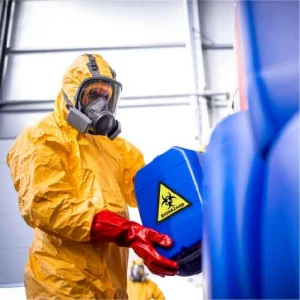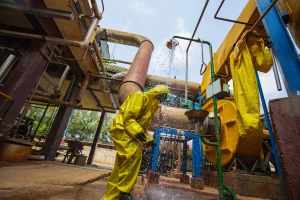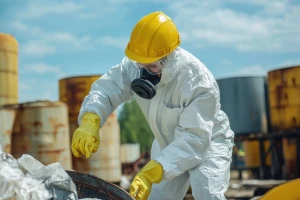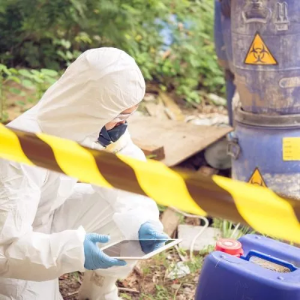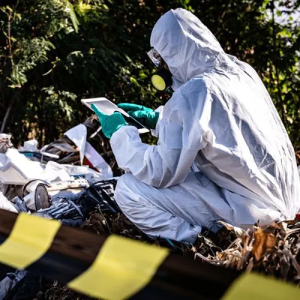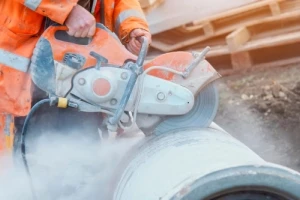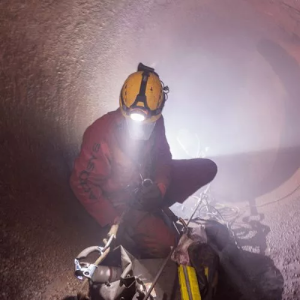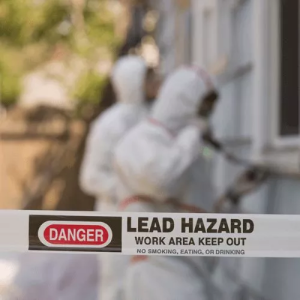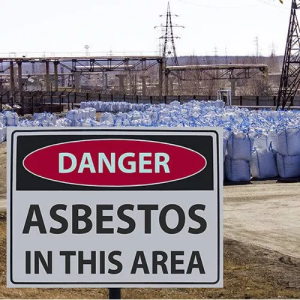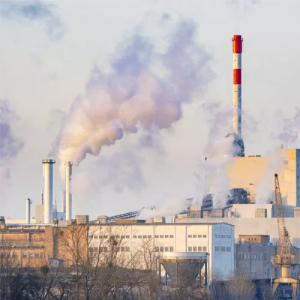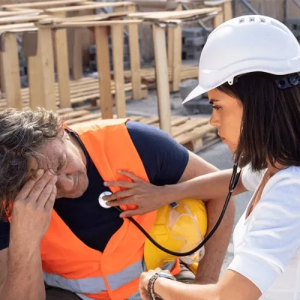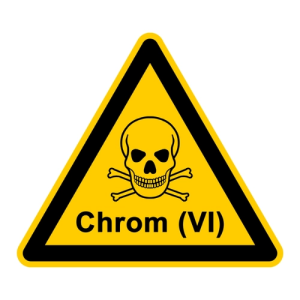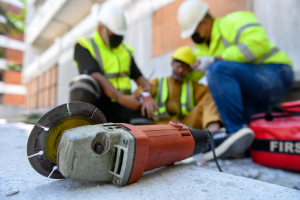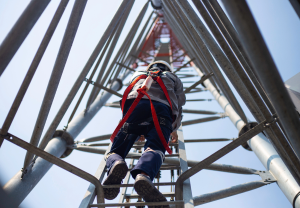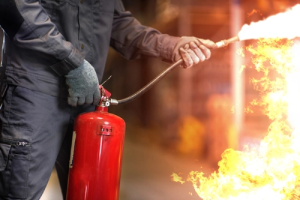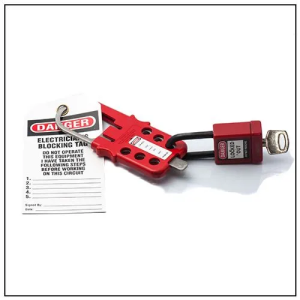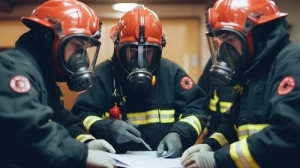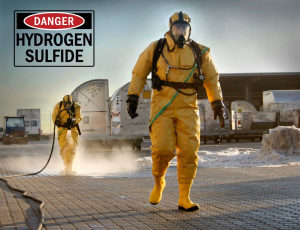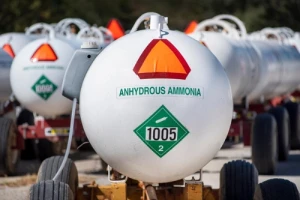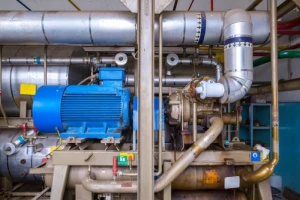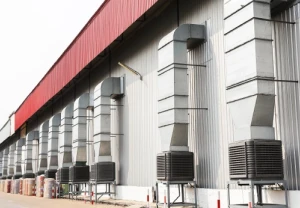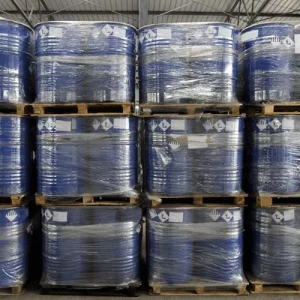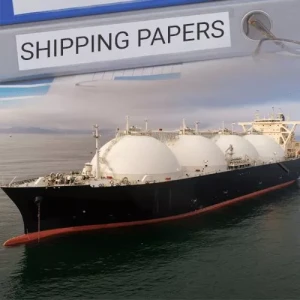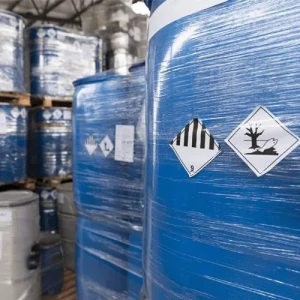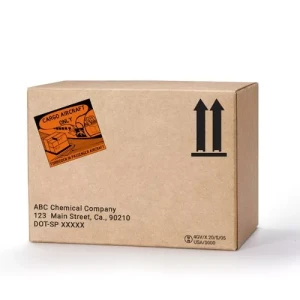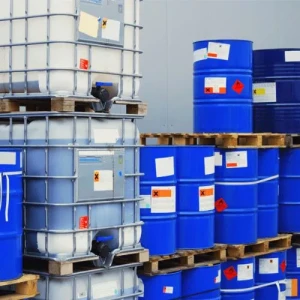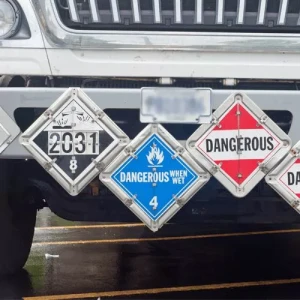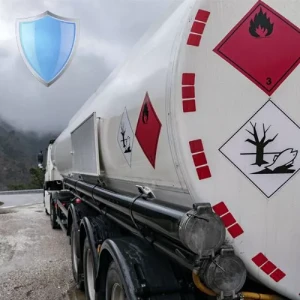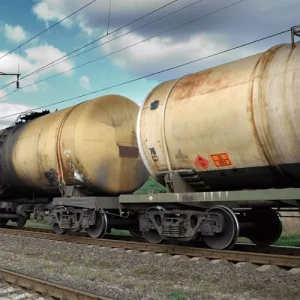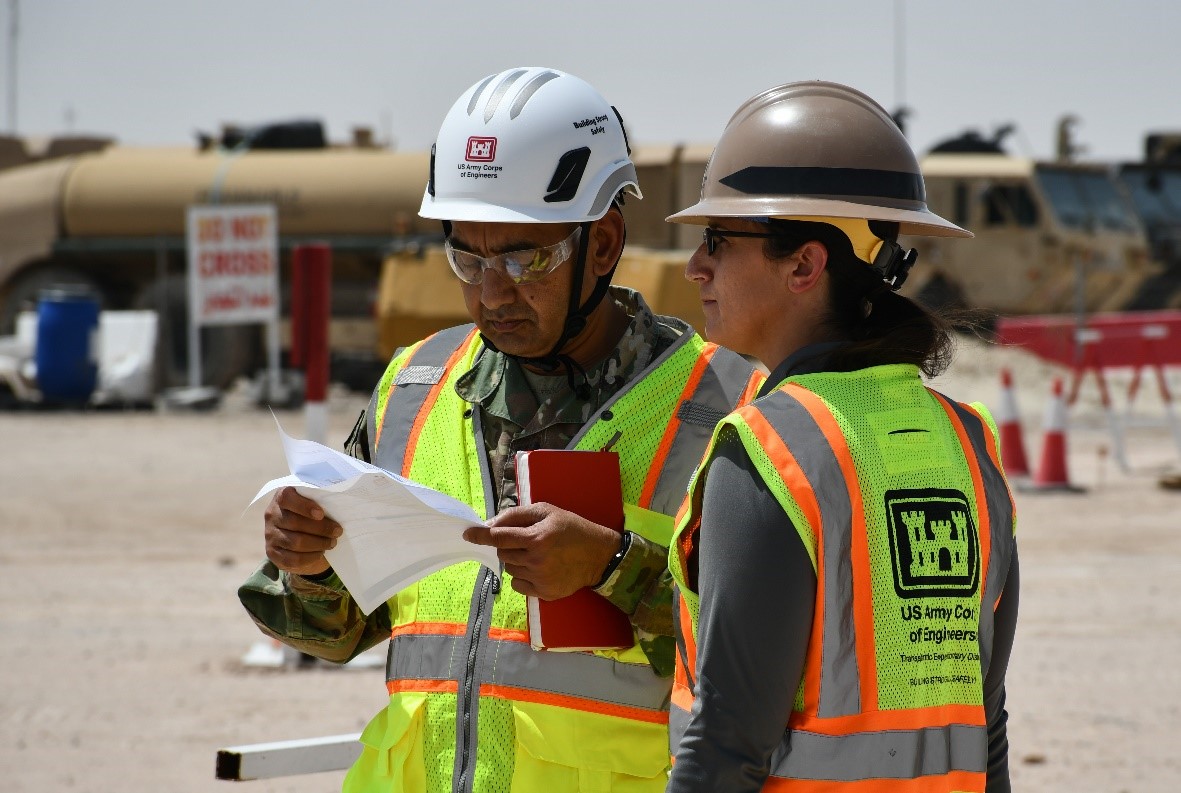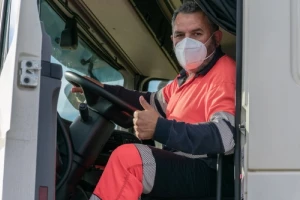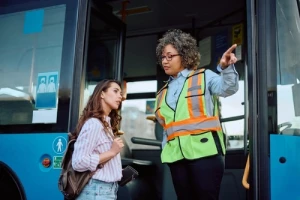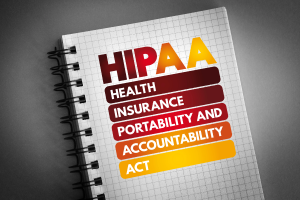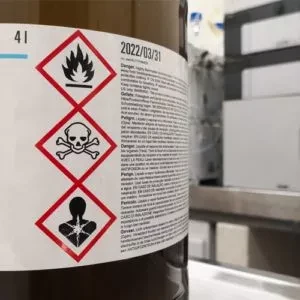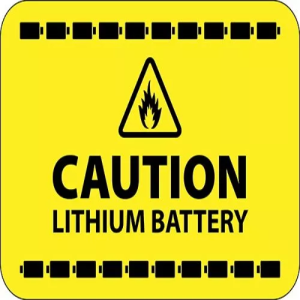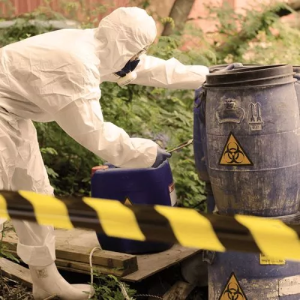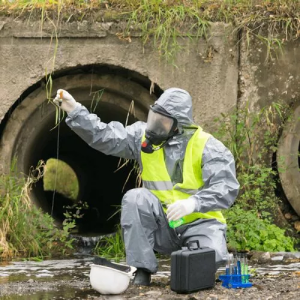Overview of RCRA Online Training

What is RCRA?
The RCRA acronym stands for the Resource Conservation and Recovery Act. According to the EPA, “RCRA is a combination of the first federal solid waste statutes and all subsequent amendments” (2020a). It is a set of laws and regulations governed by the EPA and developed to describe the waste management program mandated by Congress (EPA, 2020a). Therefore, the RCRA is in effect a framework used by the EPA “for the proper management of hazardous and non-hazardous solid waste” (EPA, 2020b). RCRA is often used by industry professionals to refer to either the RCRA law, RCRA regulations, or the EPA policy and guidance on RCRA (EPA, 2020b).
Application of the RCRA Program
By the application of the RCRA program, the EPA has complete authority to regulate all aspects of hazardous and non-hazardous waste management to protect the environment and the health of people. Any industry which generates, transports, treats, stores, cleans up, or disposes of hazardous and non-hazardous waste materials is mandated to follow the stringent regulatory requirements for waste management, and provide different levels of RCRA training for their employees. Hazard waste producers are regulated according to the quantity of waste generated and not on the size of their facility (EPA, 2020c).
The laws, regulations, and standards of the RCRA; and the RCRA training requirements are covered by Title 40 (Protection of the Environment) of the Code of Federal Regulations (CFR) Parts 239 through 282.

Waste Regulated by the RCRA
The RCRA regulates and controls non-hazardous waste, hazardous waste, medical wastes, hazardous waste clean-up operations, collection of hazardous material wastes for transport, and underground hazardous waste storage tanks. These wastes can be solid, liquid, or gaseous. However, to be considered waste, the RCRA requires such waste to be disposed of (EPA, 2020d).
Evolving Purpose of the RCRA Program
The RCRA program has changed and progressed over the years. Today, it aims to resolve ongoing challenges of HAZMAT waste generation and management including:
- population growth causing ever-increasing demands from natural resources,
- waste generated from increasingly efficient air and water pollution control devices,
- increasing amounts of highly toxic waste caused by increasing consumption, and
- the need to supervise waste clean-up or disposal from closed facilities. (EPA, 2020e)
RCRA Online Training Requirements
Part 262 – Standards Applicable to Generators of Hazardous Waste
Subpart A under Section 262.17 provides general guidance applicable to generators of hazardous waste. The section recommends employees complete either an RCRA online training such as computer-based training or electronic training, classroom instruction, or on-the-job training to enable them to perform their job tasks to comply with this part. Also, an annual RCRA refresher training is mandated for workers employed by ‘large quantity waste generators’, while employees of ‘small quantity waste generators’ are expected to be "thoroughly familiar" with the RCRA regulatory standard.
Subpart K which provides waste management regulations for Laboratories Owned by Eligible Academic Entities under Section 262.207 gives guidance on training. This section discusses a choice of training methods including RCRA online training which employers may use to provide training to laboratory workers and students to ensure they understand the requirements in this part.
Part 264 – Standards for Owners and Operators of Hazardous Waste Treatment, Storage, and Disposal Facilities
Subpart B pertains to general facility standards and details personnel training requirements under Section 264.16 dedicated to personnel training. Unfortunately, employers falling within this part of the standard, will not be able to provide RCRA online training to fulfill RCRA training requirements. This part of the standard accepts emergency response training aligned to Section(p)(8) and Section(q) as an alternative to any initial emergency response RCRA online training.
Part 265 – Interim Status Standards for Owners and Operators of Hazardous Waste Treatment, Storage, and Disposal Facilities
Training requirements are detailed under Subpart B – general facility standards under the personnel training section 265.16. Again, this part of the standard does not recommend RCRA online training. However, employees can follow the emergency response training aligned to OSHA’s Hazardous Waste Operations and Emergency Response (HAZWOPER) standards under section(p)(8) and section(q) as an alternative to any initial emergency response RCRA online training.
Part 266 – Standards for the Management of Specific Hazardous Wastes and Specific Types of Hazardous Waste Management Facilities
Employee training is required under Section 266.230 and is as described under Part 265 Section 16(a)(3).
Part 267 – Standards for Owners and Operators of Hazardous Waste Facilities Operating Under a Standardized Permit
Under section 267.16, this part of the standard recommends RCRA training. This includes initial training, RCRA refresher training, and emergency response training as described in part 265. However, RCRA online training is not part of the mentioned methods of training.
Who Should Enroll in the RCRA Online Training?
Any industry or employer that generates, manages, stores, cleans up, transports, or disposes of hazardous substance wastes must provide its employees with the RCRA certification training. The range of industries that fall within these categories is wide and varied. Employees working in industries such as beauty, petroleum, medical, biochemical, pharmaceutical, computer hardware, electronics, HVAC supply, recycling, automotive, etc., must obtain an RCRA training certification of completion.
Considered from a work task perspective, the EPA recommends workers whose job responsibilities include the below tasks to undergo RCRA training aligned to their specific hazardous waste regulatory topic. Such training courses often consist of the RCRA online training program.
- Identifying and calculating hazardous waste.
- Bundling and collecting hazardous waste; marking, labeling, inspecting, handling, or moving hazardous waste containers.
- Managing hazmat waste in satellite areas.
- Operating a waste-generating process.
- Reading and applying the RCRA regulations.
With such a long list, it is indeed helpful that there are many RCRA training online course providers available today.

RCRA Training Formats
An important part of the RCRA is the training element of the standards. The EPA has developed a range of RCRA online training modules as useful resources to provide an understanding of the RCRA program and help employers develop comprehensive RCRA training programs. These RCRA online training modules also act as summarized information sources for employers to apply the RCRA regulations and standards for hazardous waste management in their worksites.
The RCRA endorses training for personnel that includes classroom instruction, RCRA online training, and on-the-job training targeted at ensuring workers know to perform their duties in compliance with the different topics under the RCRA standards. As is common for OSHA-recommended safety and health online training programs, the EPA has not stipulated specific hours for the RCRA online training course. The general directive is to ensure workers working with hazardous wastes can understand the different hazards and safety measures associated with their job roles and responsibilities. Most initial RCRA online training is expected to be completed within six months of either the effective date of the regulations, date of employment, assignment to the facility, or to a new position at the facility, whichever is later. Annual RCRA refresher training is also recommended for continuous learning opportunities for some of the subparts of the RCRA standards.
The RCRA, however, recommends that most employees handling hazardous waste must at a minimum, be trained to effectively handle HAZMAT emergencies by having a clear understanding of emergency procedures, emergency equipment, and emergency systems used by their employers. However, the RCRA standard does provide for emergency response training aligned to OSHA’s Hazardous Waste Operations and Emergency Response (HAZWOPER) standards under Section(p)(8) and Section(q) as an alternative to any initial emergency response RCRA online training.
Duration of RCRA Online Training
Each of the different RCRA online training courses is of different durations. In essence, they endeavor to cover the topics and information as recommended by the RCRA online training modules provided by the EPA. Commercial RCRA online training course providers offer different durations depending on the breadth and depth of the topics covered, the target audience, and the parts of the RCRA standards covered under the RCRA online training syllabus. For example, an RCRA online training program that covers Part 262 may be as short as 45-minutes, while an RCRA online training course covering a couple of parts may be of a four-hour duration. More comprehensive courses on several RCRA topics from the RCRA online training modules may extend to as long as 12 to 16 hours of RCRA training online.
Certificate of Completion for RCRA Online Training
Part of the RCRA training requirement is for employers to have complete training records of their employees. Therefore, it is recommended that RCRA online training providers offer trainees an authorized RCRA online training course completion certificate.
RCRA for Hazardous Waste Transport Operators
According to the EPA, hazardous waste transporters are companies or individuals who move HAZMAT waste from one place to another by road, rail, water, or air (EPA, 2020e). The RCRA covers these employees under Subtitle C, under Part 263 of the RCRA standards applicable to transporters of hazardous waste. This RCRA standard covers only the transportation of hazardous waste to external sites or storage locations using a public transport system (EPA, 2020e). As such, the hazardous waste transporter regulations have been developed in collaboration with the EPA and the U.S. Department of Transportation (DOT). Many of the regulations are aligned to the Code of Federal Regulations Title 49 which guides the administrative law on transportation and transportation-related security in the United States. This part of the RCRA standards expects all hazardous waste transporters to consult and comply with the applicable requirements in the DOT Hazardous Materials Regulations (HMR).
Thus, the DOT-RCRA online training requirements for all personnel working for transporters of hazardous waste must be diligently followed and the DOT-RCRA online training course taken as required by the DOT HAZMAT transportation training requirements.
What Next?
Enroll Today for the 4 Hour RCRA Hazardous Waste Generator Online Training!
We offer a 4-hour RCRA Hazardous Waste Generator online training course and an RCRA Hazardous Waste Generator Refresher online training designed for individuals seeking training and certification for work in compliance with EPA regulations (40 CFR Part 261 and 40 CFR Part 262) for handling and management of hazardous waste. This includes hazardous waste generators; supervisors; owners and operators of treatment, storage, and disposal facilities; and environmental compliance specialists among many others.
References
- EPA. (2020a, May 26, updated). Resource Conservation and Recovery Act (RCRA) Overview. What is RCRA? Website. https://www.epa.gov/rcra/resource-conservation-and-recovery-act-rcra-overview#whatisrcra
- EPA. (2020b, May 14, updated). Resource Conservation and Recovery Act [RCRA] Laws and Regulations. Website. https://www.epa.gov/rcra
- EPA. (2020c, July 1, updated). Hazardous Waste Generators. Website. https://www.epa.gov/hwgenerators
- EPA. (2020d, May 26, updated). Resource Conservation and Recovery Act (RCRA) Overview. How does RCRA work? Website. https://www.epa.gov/rcra/resource-conservation-and-recovery-act-rcra-overview#howdoesrcrawork
- EPA. (2020d, May 26, updated). Resource Conservation and Recovery Act (RCRA) Overview. RCRA Today. Website. https://www.epa.gov/rcra/resource-conservation-and-recovery-act-rcra-overview#rcratoday
- EPA. (2020e, May 13, updated). Hazardous Waste Transportation. Website. https://www.epa.gov/hw/hazardous-waste-transportation

